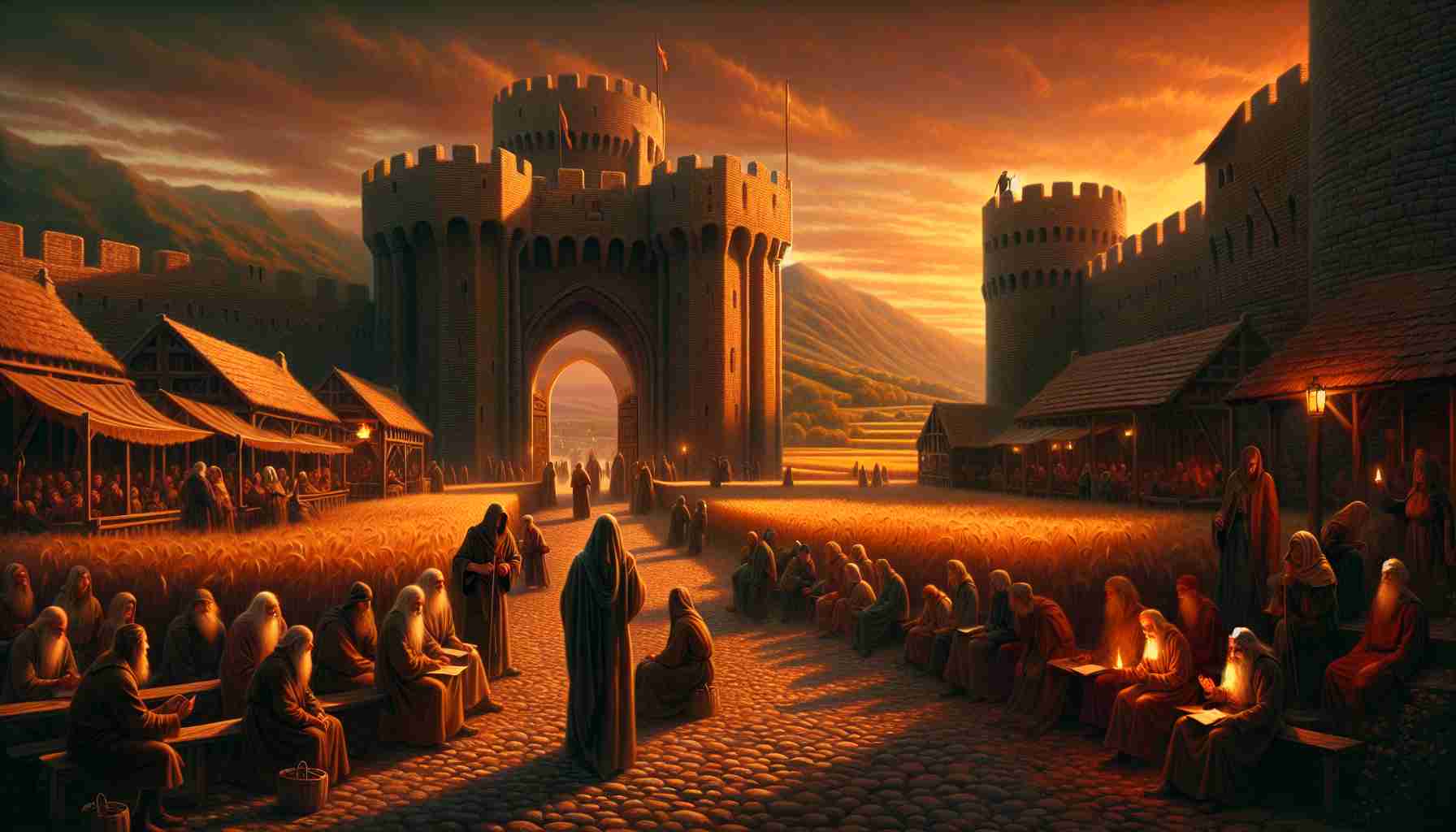

I never imagined I’d end up here, breathing the air of Kedesh—one of the six cities of refuge. I was a woodcutter’s son, nothing more. My name doesn’t matter, only what I’ve done… and what God did for me.
It started with a scream.
That morning, I’d gone into the forest with Yair, a neighbor from our tribe of Naphtali. The sun had barely risen. The dew clung to our sandals, and the smell of pine was strong. We were joking about last week’s market when he handed me a new axe. The blade gleamed. He wanted me to break it in.
My swing was strong, too strong. The head of the axe flew loose and struck Yair in the neck. He dropped without a sound.
For a moment, time froze. I stood there holding the handle, staring at Yair’s lifeless body. My knees gave out. Then I ran.
I wasn’t running from guilt—I felt it deep, as deep as the woods we’d walked—but I knew what the law said. “The avenger of blood,” the relative of the one killed, had the right to come after me. Even though it was an accident, even though I loved Yair like a brother, I had to get to one of the cities that God, through Moses, had set aside. A city of refuge.
I stumbled into Kedesh after two days of running. My clothes were torn, my feet blistered. The gatekeepers listened as I told my story, choking out every word through tears. They let me in, and the elders convened. I waited, staring at the walls, wondering what would happen next. Would I ever see my family again? Would they believe me? Was this mercy… or just another kind of prison?
They decided I could stay.
I lived in Kedesh for years. Other men were there, too—others who had killed by accident. We worked, studied, and prayed. We weren’t allowed to leave until the High Priest died. That was the rule outlined in the Torah, in the book of Bamidbar—Numbers chapter 35. This law wasn’t just a technicality. It was a gift from God. A shelter not just for our bodies, but for our souls. I felt that slowly.
At first, I woke screaming at night. I saw Yair’s face every time I closed my eyes. But the priests taught us that God sees the heart, and in that city, I was given time to examine mine. I begged forgiveness every day—not only from God, but from Yair’s family. I sent letters through the priests, and many moons later, his brother wrote back. Just three words: “We forgive you.”
When the High Priest died, the city elders told me I was free to return. I stepped past the gates with tears in my eyes.
Kedesh had not erased my guilt, but it had transformed it. Justice and mercy had met within those walls. And in the heartache, I found holiness.
I never imagined I’d end up here, breathing the air of Kedesh—one of the six cities of refuge. I was a woodcutter’s son, nothing more. My name doesn’t matter, only what I’ve done… and what God did for me.
It started with a scream.
That morning, I’d gone into the forest with Yair, a neighbor from our tribe of Naphtali. The sun had barely risen. The dew clung to our sandals, and the smell of pine was strong. We were joking about last week’s market when he handed me a new axe. The blade gleamed. He wanted me to break it in.
My swing was strong, too strong. The head of the axe flew loose and struck Yair in the neck. He dropped without a sound.
For a moment, time froze. I stood there holding the handle, staring at Yair’s lifeless body. My knees gave out. Then I ran.
I wasn’t running from guilt—I felt it deep, as deep as the woods we’d walked—but I knew what the law said. “The avenger of blood,” the relative of the one killed, had the right to come after me. Even though it was an accident, even though I loved Yair like a brother, I had to get to one of the cities that God, through Moses, had set aside. A city of refuge.
I stumbled into Kedesh after two days of running. My clothes were torn, my feet blistered. The gatekeepers listened as I told my story, choking out every word through tears. They let me in, and the elders convened. I waited, staring at the walls, wondering what would happen next. Would I ever see my family again? Would they believe me? Was this mercy… or just another kind of prison?
They decided I could stay.
I lived in Kedesh for years. Other men were there, too—others who had killed by accident. We worked, studied, and prayed. We weren’t allowed to leave until the High Priest died. That was the rule outlined in the Torah, in the book of Bamidbar—Numbers chapter 35. This law wasn’t just a technicality. It was a gift from God. A shelter not just for our bodies, but for our souls. I felt that slowly.
At first, I woke screaming at night. I saw Yair’s face every time I closed my eyes. But the priests taught us that God sees the heart, and in that city, I was given time to examine mine. I begged forgiveness every day—not only from God, but from Yair’s family. I sent letters through the priests, and many moons later, his brother wrote back. Just three words: “We forgive you.”
When the High Priest died, the city elders told me I was free to return. I stepped past the gates with tears in my eyes.
Kedesh had not erased my guilt, but it had transformed it. Justice and mercy had met within those walls. And in the heartache, I found holiness.